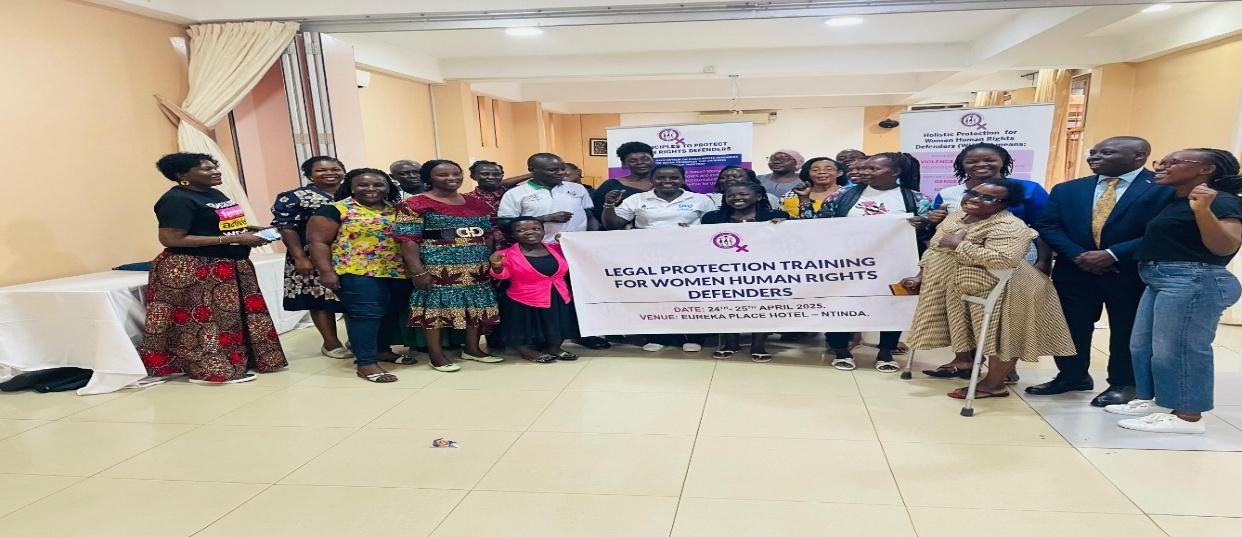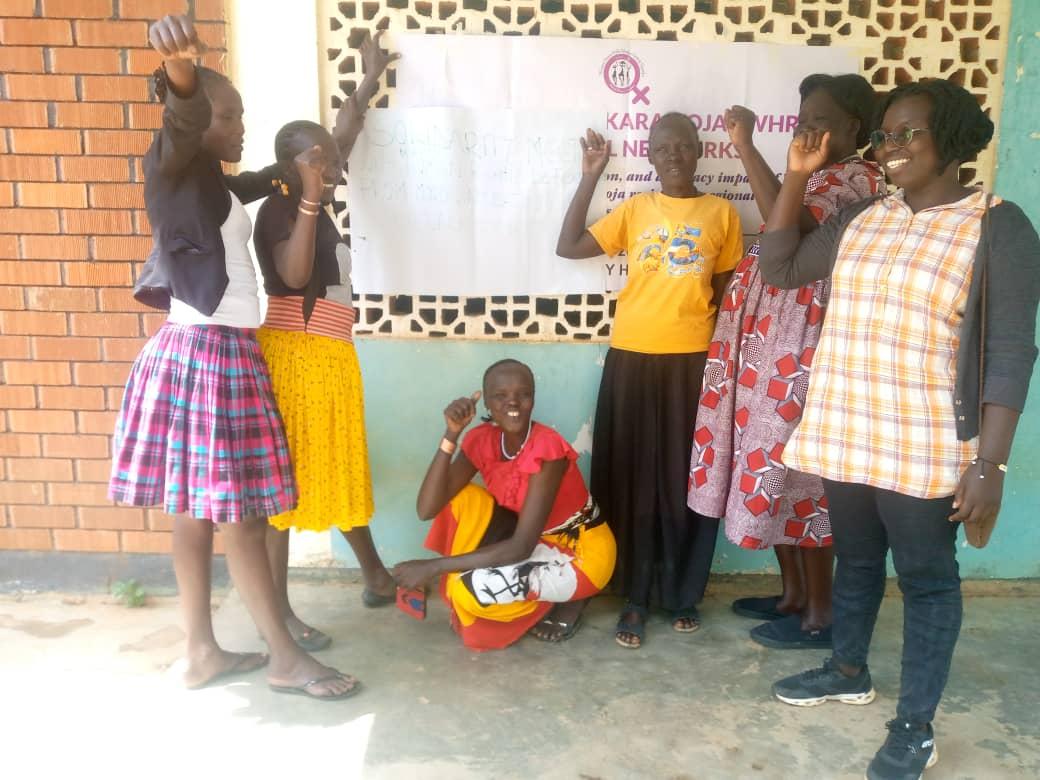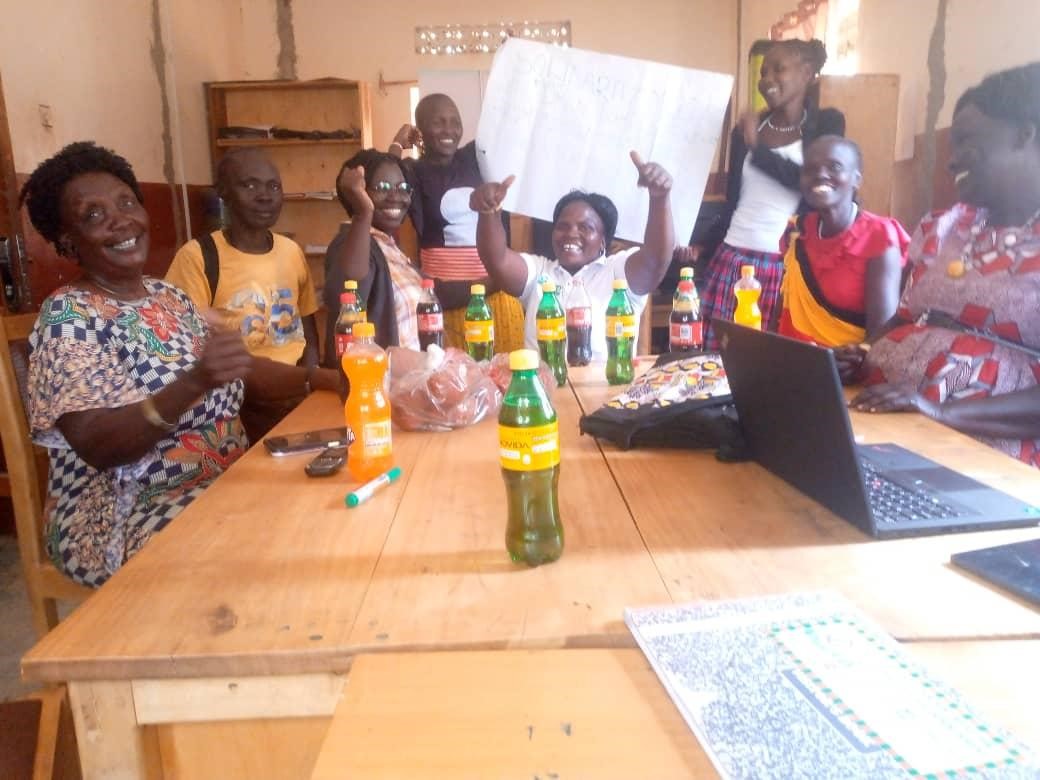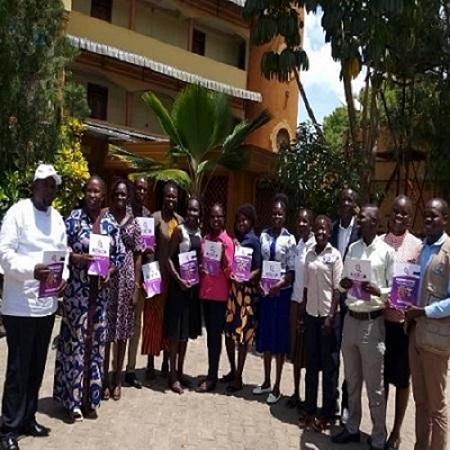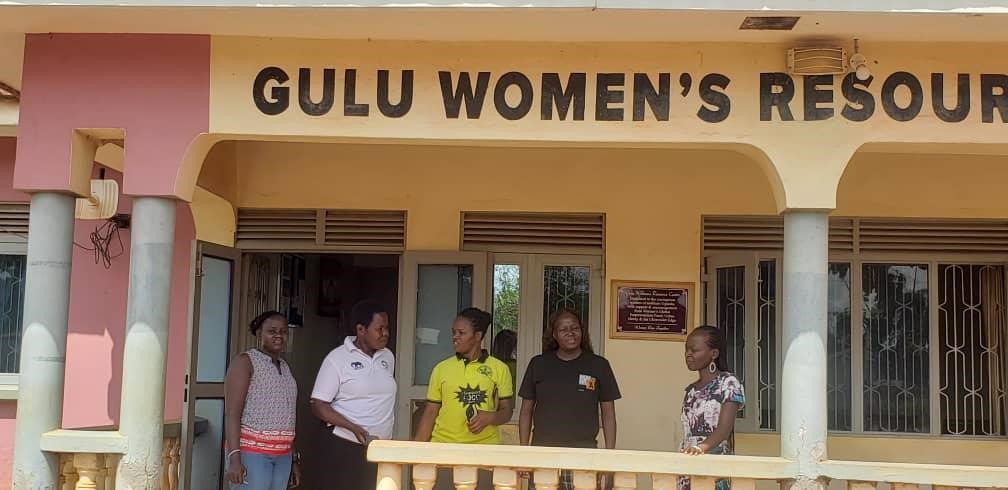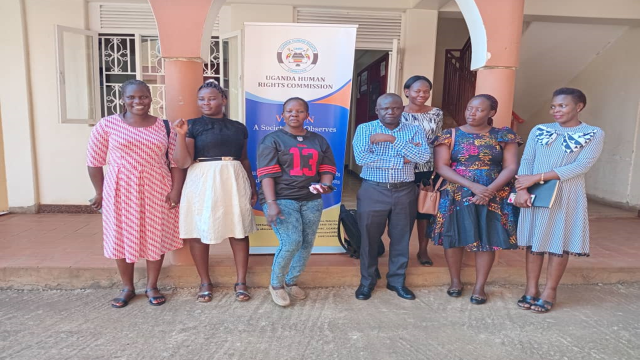Introduction
In Uganda, Women Environmental Defenders (WEDs) are at the frontline of protecting forests, wetlands, water sources, and land, especially in rural and indigenous communities. Despite their critical role in promoting ecological justice and sustainable development, WEDs often operate in high-risk environments, facing threats such as gender-based violence, criminalization, marginalization, and lack of recognition.
To honour their work and amplify their voices during the World Environment Day celebrations, the Women Human Rights Defenders Network Uganda (WHRDN-U) conducted a one-day convening to reflect, connect, share experiences, and strengthen collective strategies for protection and advocacy. The convening brought together 22 Women Environmental Human Rights Defenders from across all regions which took place at Arch Apartments Hotel in Ntinda.
Understanding the Work of Environmental Women Human Rights Defenders
Brenda in her opening remarks shared that the women are educated. She welcomed all the protocol, including the Batwa, and emphasized that the WEHRDs are not idle they are working so hard. Due to their work, many have been isolated in their different regions, to the extent that many have been attacked and arrested.
She also noted that they have been targeted due to their efforts to prevent wetland degradation.
Understanding the Laws that Protect Environmental Women Human Rights Defenders (How to Conserve the Environment – Legal Frameworks)- Facilited by Eunice Asinguza from NEMA.
Eunice began her presentation by explaining different Legal frameworks that Protect the Environmental Women Human Rights Defenders in the country.
National Environment Act (2019)
This Act provides the legal framework for environmental management in Uganda.
Key Functions:
- Establishes the National Environment Management Authority (NEMA) as the lead agency.
- Regulates environmental impact assessments (EIAs) before any project is approved.
- Promotes sustainable development and pollution control.
- Provides for community participation in environmental decision-making.
- Mandates environmental audits, compliance monitoring, and enforcement mechanisms.
Water Act (Cap. 152)
This Act governs the use, management, and protection of water resources.
Key Functions:
- Regulates water abstraction, usage, and discharge through permits.
- Protects public water sources and promotes equitable access.
- Empowers the Ministry of Water and Environment to monitor water quality.
- Encourages conservation and sustainable use of water bodies.
- Criminalizes pollution of water bodies.
The Land Act (Cap. 227)
Provides for the ownership, tenure, and management of land.
Key Functions:
- Recognizes four types of land tenure: customary, freehold, mailo, and leasehold.
- Protects tenants and land users, including women and marginalized groups.
- Empowers District Land Boards and Area Land Committees to manage land rights.
- Guides land use planning to ensure sustainable environmental practices.
- Requires landowners to maintain environmental safeguards on their land
Wildlife Act (2019)
Provides for the protection and sustainable management of wildlife and habitats.
Key Functions:
- Establishes the Uganda Wildlife Authority (UWA).
- Regulates conservation areas, including national parks and game reserves.
- Penalizes illegal hunting, trafficking, and destruction of wildlife habitats.
- Promotes community wildlife conservation and benefit-sharing.
National Forestry and Tree Planting Act (2003)
Governs the sustainable management of forests and promotes tree planting.
Key Functions:
- Provides for the management of both central and local forest reserves.
- Encourages private and community tree planting.
- Penalizes illegal logging and forest encroachment.
- Establishes forest management plans and forest user groups.
- Assigns responsibilities to the National Forestry Authority (NFA).
National Climate Change Policy (2015)
Provides strategic guidance for addressing climate change impacts in Uganda.
Key Functions:
- Guides integration of climate change into sectoral and district planning.
- Promotes resilience and adaptation measures (e.g., drought-resistant agriculture).
- Encourages low-carbon development strategies.
- Supports community awareness and disaster preparedness.
- Guides government on accessing climate finance (e.g., Green Climate Fund).
Gender Policy (2007)
Promotes gender equality and integration of gender perspectives into development.
Key Functions:
- Ensures that environmental policies and projects consider the needs of women and men equally.
- Encourages women’s participation in environmental governance.
- Provides a framework for gender-responsive budgeting and programming.
- Addresses gender-based barriers to resource access and decision-making.
Land Policy (2013)
Guides equitable access, ownership, and use of land resources.
Key Functions:
- Aims to strengthen land rights, especially for women, indigenous communities, and pastoralists.
- Promotes environmental sustainability through integrated land use planning.
- Encourages land dispute resolution through community structures.
- Supports decentralization of land governance.
- Aims to reduce land degradation and promote conservation.
National Wetlands Policy (1995)
Provides a framework for the conservation and sustainable use of wetlands.
Key Functions:
- Protects wetlands from encroachment, drainage, and pollution.
- Promotes wise use of wetlands for sustainable livelihoods (e.g., papyrus harvesting).
- Empowers local governments and communities to manage wetland resources.
- Prohibits issuance of land titles in wetlands.
- Encourages restoration of degraded wetlands.
Wildlife Policy (2014)
Sets the strategic direction for wildlife conservation and management.
Key Functions:
- Focuses on sustainable utilization of wildlife resources.
- Promotes ecotourism and community involvement in conservation.
- Emphasizes the protection of endangered species.
- Supports education and awareness on wildlife issues.
- Facilitates transboundary conservation with neighboring countries.
Forestry Policy (2001)
Provides a vision for the forest sector based on sustainable use and public participation.
Key Functions:
- Promotes collaborative forest management with communities and civil society.
- Encourages private investment in forest development.
- Guides reforestation and afforestation programs.
- Supports conservation of biodiversity and critical forest ecosystems.
- Aligns forest use with poverty reduction and rural development.
NEMA as well works with the Office of the President and the Ministry of Water and Environment.
Why Environment? (Reasons for Defending the Environment)
Eunice emphasized the importance of environmental protection within the context of human rights advocacy. She provided several reasons why Women Environmental Human Rights Defenders (WEHRDs) should persist in their efforts to protect the environment, summarised as follows:
- Legal requirement: Environmental protection is not optional—it is a legal requirement which is in national legislation. Communities are therefore obliged to preserve natural resources in compliance with the law.
- Foundation for Development: A healthy environment serves as the basis for sustainable development. Economic activities, including agriculture and tourism, depend on clean air, water, and land.
- Conservation of Human Life: The facilitator highlighted the right to food as a fundamental human right. She warned that increasing use of chemicals in food production has resulted in pollution and contributed to the rise of diseases such as cancer.
- Protection of Biodiversity: The degradation of ecosystems has led to the loss of medicinal plants and traditional remedies. Conservation efforts are therefore crucial for protecting both natural heritage and public health.
- Climate Justice: The country is experiencing prolonged droughts, which have significantly reduced food production. Environmental defenders are at the forefront of promoting climate justice and advocating for climate resilience.
- Accountability and Transparency: Eunice emphasized the need to hold both local and foreign companies accountable for environmental degradation. She referenced ongoing issues in Karamoja as an example where natural resources are being exploited without community benefit or proper regulation.
Participant’s Reflections and Concerns
During the interactive session, participants shared real-life examples to reinforce the discussion:
- Grace pointed out that forests serve not only as natural habitats but also as cultural and medicinal sites. She cited Kitagata Hot Springs as a historical site where communities collect herbal medicines for family healthcare.
- Halima, from Katwe, expressed concern over the pollution of Lake Katwe, an important source of salt and livelihoods for the surrounding community.
Eunice also informed participants of her role as a senior negotiator on climate change and a member of the NEMA committee tasked with assessing the risks faced by WEHRDs. She shared insights into the challenges NEMA currently faces, including limited enforcement capacity and resistance from powerful stakeholders.
To support environmental sustainability, she encouraged women to actively participate in reforestation efforts, stating that “every woman should plant as many trees as the number of children she has.”
- Viola raised a concern about pollution in water bodies, explaining that contamination of one lake could have downstream effects on others. She highlighted land conflicts and evictions related to sugarcane plantations and questioned the effectiveness of NEMA’s protection mechanisms for WEHRDs.
- Viola Kataike also noted that some community members question the legitimacy of women defenders, challenging their authority and motives in advocating for environmental protection.
- Irene, speaking about Bugoma Forest, shared that many community members fear accessing the forest due to repeated attacks and restrictions. She questioned how defenders could operate in such an environment. In response, Eunice acknowledged the challenge, noting the influence of patriarchal systems and emphasized the need for structural and legal reform.
Eunice explained that environmental management in Uganda is decentralized, operating through a digitally supported system. The framework includes coordination with:
- District Environmental Officers
- District Local Councillors
- Environmental Committees
Sharon Ocola inquired about the existence of local ordinances and bylaws regulating environmental behavior. In response:
- Akello Sarah reported that Moroto town is experiencing significant pollution, particularly with human waste in the streets.
- Imalingat confirmed the existence of an ordinance in Moroto aimed at addressing open defecation and improving sanitation.
Mandate of the National Environment Management Authority (NEMA)
The facilitator concluded the session by outlining NEMA’s core mandate in environmental protection and its role in defending the rights and safety of WEHRDs. Key functions include:
- Regulating, monitoring, and supervising all activities that impact the environment
- Advising government on climate change policy and national environmental priorities
- Referring issues to relevant lead agencies for further action
- Issuing environmental compliance certificates for projects and developments
- Coordinating with local communities to promote grassroots environmental stewardship
- Collaborating with religious leaders to advocate against environmental degradation
- Reviewing and deciding on Environmental Impact Assessments (EIAs)
- Conducting environmental audits to ensure compliance
- Creating awareness through education and outreach programs
Understanding Environmental Rights (Facilitated by Director Ruth Sekindi – UHRC)
Director Ruth Sekindi emphasized the linkage between human rights and environmental protection. She cited practical examples, such as the construction of factories near water bodies, which results in the dumping of waste into water sources. This contamination leads to disease outbreaks and undermines the right to a clean and healthy environment, a fundamental human right.
She further elaborated on the concept of Women Environmental Human Rights Defenders (WEHRDs), describing them as women actively engaged in defending environmental rights. She noted that these women play a critical role in climate change advocacy and environmental protection, often working under challenging conditions.
Director Ruth highlighted that the mojority of WEHRDs in Uganda are indigenous women, particularly those residing in forested areas where mineral resources have been discovered. These women are primarily located in rural communities, not urban centers, and are engaged in addressing environmental issues such as water and air pollution, deforestation, and mining activities.
She underscored that environmental rights encompass key substantive rights, including the right to food, clean water, clean air, and life itself.
Discussion on the Safety and Security of WEHRDs
Director Ruth addressed the safety concerns facing WEHRDs, noting that many of them operate in patriarchal societies where traditional norms restrict women to caregiving roles. As a result, women who step into advocacy roles especially in sectors perceived as “masculine” like environmental defense are often labelled as confrontational or rebellious.
She advised that in order to remain safe, WEHRDs must begin by understanding the environment they work in, along with their legal rights, such as the right to opinion and freedom of speech. She recommended that defenders assess risks carefully before taking any action, by researching incidents and understanding the roles of key stakeholders, including NEMA, UHRC, NGOs, and relevant government entities.
On the matter of communication, she cautioned that some platforms like WhatsApp may no longer be secure and advised the use of safer, more encrypted social media tools for communication and advocacy.
For physical safety, she encouraged WEHRDs to:
- Avoid visiting high-risk areas alone.
- Always stay visible, maintain a network of emergency contacts, and avoid hiding their work.
- Be tactical and avoid confronting powerful figures directly.
- Remain active and visible on social media, and where necessary, use anonymous accounts to raise concerns.
She emphasized the importance of setting personal boundaries and recognizing one’s worth. Irene, one of the participants, testified that she had been harassed by a government official while seeking accreditation for her work.
Sharon Ocola also shared her experience, stating that her climate activism has made her a target of both physical and online attacks, including threats and intimidation.
Director Ruth encouraged building strategic alliances with authorities and ensuring that local communities are supportive of the defenders’ work. She stressed the need to document all forms of engagement, threats, pollution incidents, and community meetings, as these records provide critical evidence for advocacy and protection.
Furthermore, she reminded participants that companies seeking to operate in their communities under the guise of development or investment must first obtain Free, Prior and Informed Consent (FPIC) from community members. The government, she added, holds the responsibility to protect its citizens from harmful practices by investors.
She recognized the defenders’ role in protecting land, wetlands, clean water sources, biodiversity, and climate justice, and reinforced that their work is both valuable and necessary.
Imalingat encouraged fellow WEHRDs to actively participate in local decision-making processes, especially meetings within their communities, to remain informed and engaged in environmental governance.
However, Jackline noted that women often face threats of demotion or intimidation when they challenge male authority in such forums, especially on issues related to environmental degradation.
Understanding the challenges and attacks faced by the Environmental Women Human Rights Defenders. The challenges were presented in Groups of 03 and inform of testimonies from the defenders during their human Rights work.
Group 01:
Physical Assaults:
- Participants reported multiple cases of physical violence by law enforcement officers during peaceful environmental protests.
- In Buikwe District, residents organizing a peaceful demonstration against air and water pollution were physically assaulted by police.
- Similar incidents occurred in Bulisa, where community members protesting deforestation were violently scartered.
- In Bundibugyo, citizens opposing land evictions faced beatings from security personnel.
Discrimination:
- In Iganga District, Persons with Disabilities (PWDs) reported consistent exclusion from public functions by the District Community Development Officer (DCDO), reflecting a number of discriminations.
Sexual Harassment:
- In the same district, it was reported that PWDs advocating for flood-related relief and support faced sexual harassment from local leaders, particularly when demanding basic rights and protections.
Arbitrary Arrests:
- In Buikwe, three protest leaders were arbitrarily arrested and detained for an entire day during a peaceful protest against industrial pollution.
Suppression of Advocacy:
- In Bulisa, the NAVODA office was forcibly closed following their extensive community sensitization on the dangers associated with air and gas extraction projects, reflecting state resistance to environmental advocacy.
Physical Intimidation and Threats:
- Across all participating regions, environmental defenders reported routine threats and intimidation, creating a hostile environment for activism.
Displacement and Forced Evictions:
- In the Albertine (Bunyoro) Region, participants highlighted the displacement of communities due to oil exploration and extraction activities. In many cases, evictions were carried out without community consent, violating both environmental and human rights.
Group 02:
Gender-Based Violence and Discrimination:
- In Hoima, a government official reportedly demanded sexual favors in exchange for providing accreditation support to a woman environmental defender.
- In Jinja, cultural stereotypes were cited where men publicly demean women for cycling, claiming that women cyclists “are not real women.”
- Imalingat, a defender from Katakwi/Kotido, shared her experience of social stigma for being a feminist. Community members viewed her as rebellious and hostile to male authority.
Criminalization and Legal Harassment:
- A defender from Kumi reported threats of arrest after discussing corruption on a local radio talk show, where a bribe of UGX 3 million was allegedly demanded by officials for employment.
- In Hoima, police reportedly issued threats to climate activists and community mobilizers opposing the East African Crude Oil Pipeline (EACOP).
- Physical Violence:
In Bundibugyo, defenders opposing deforestation reported frequent beatings and violent reprisals from local authorities.
Community Isolation and Stigmatization:
- Across all regions, defenders experienced ostracization during campaigns focused on women’s land rights, anti-deforestation efforts, soil conservation, and promotion of non-motorized transport.
Corporate and State-Backed Retaliation:
- One participant reported being targeted by TotalEnergies for raising concerns about EACOP’s environmental impact.
Lack of Protection and Institutional Support:
- State institutions often failed to provide protection to defenders during anti-pollution campaigns. For instance, there was a notable lack of enforcement against the use of polythene bags and plastics, which contribute to soil degradation, malnutrition, and food insecurity.
Lack of Resources:
- Participants emphasized the resource constraints that hinder their ability to effectively mobilize communities and engage in sustained environmental advocacy.
Limited Inclusion in Decision-Making:
- Women defenders expressed frustration at their exclusion from key climate change and environmental decision-making spaces, despite their frontline roles in advocacy and community engagement.
Group 03:
Gender-Based Violence and Sexual Harassment:
- During a protest against water pollution, some women defenders were reportedly stripped by police officers, constituting a severe violation of their dignity and rights.
Certain organizations allegedly failed to secure Memorandums of Understanding (MOUs) because women leaders refused to exchange sexual favors, highlighting institutionalized exploitation.
Verbal Abuse:
- Defenders reported being blackmailed and defamed by opponents using horrible language.
- PWDs have been subjected to verbal attacks, being labeled as “nonsense persons,” while young female defenders are routinely denied a platform to speak based on their age and gender.
Tribal and Cultural Discrimination:
- In regions such as Moroto, cultural norms prevent women from owning or inheriting land, marginalizing their voices in environmental and land-related discussions.
Health-Based Stigmatization:
- Some women human rights defenders (WHRDs) are associated with their health status and referred to as “dead bodies,” reflecting harmful stigma and discrimination because of their HIV/AIDs status.
Lack of Resources and Protection:
- Defenders cited that official assistance often requires bribes, limiting access to justice and support.
- There is no direct legal or financial support available to grassroots environmental activists, undermining their capacity to carry out their work safely and effectively.
Role of WHRDN-U in protecting the Environmental Women Human Rights Defenders.
- Provide protection Rapid Response and legal support.
- Build solidarity and networking opportunities for WEHRDs.
- Coordinate meetings and national engagements stakeholders like NEMA and Uganda Human Rights Commission.
- Support documentation of WEHRD incidents on legal violations, different attacks and threats.
- Provide protection trainings to educate the WEHRDs about their legal rights, and Human Rights frameworks.
Key Successes from the Convening.
- The convening enhanced the participants’ understanding of Uganda’s environmental legal frameworks and policies. Through detailed sessions led by officials from NEMA and UHRC, WEHRDs gained practical knowledge of the the role of different institutions. This knowledge empowered them to identify legal entry points for advocacy and protection.
- The meeting provided a platform for the 22 WEHRDs to share their lived experiences, struggles, and successes. For many, it was their first time engaging at a national level, especially those from remote and indigenous communities.
- The participation of indigenous communities, including the Batwa, and defenders from hard-to-reach regions such as Moroto and Bundibugyo, amplified underrepresented voices. This highlighted the unique risks and contributions of indigenous women and women with disabilities in environmental activism.
Key Lessons Learnt during the Convening.
- Women Environmental Human Rights Defenders face multiple threats,violationsand attacks yet remain committed.
- Collaboration and visibility are very important for the women Environmental Human Rights Defenders.
- Many WEHRDs had limited knowledge of environmental laws before the convening. Sessions facilitated by NEMA and UHRC significantly increased participants’ confidence in using legal frameworks as tools of resistance and protection.
Conclusion
This convening successfully honored Women Environmental Defenders and provided a platform for knowledge sharing, reflection, and joint strategizing. It reaffirmed the critical role of women in environmental protection and the urgent need for coordinated efforts to ensure their safety, recognition, and inclusion.
Action Points and Next Steps
| Action | Responsible Persons | Timeline |
| Engage NEMA Committee for 16 Days of Activism. | Eunice & coordinated by Sarah Akello, Viola Kataike, Judith Mbabazi. | Start the process of engagement by September 2025 |
| Join NEMA in World Environment Day celebrations in Kabale. | Sarah Kabagenyi (to coordinate Batwa participation), Harriet to select some participants from Central. | June 25, 2025 |
| Strengthen community engagement on environmental rights | WHRDN-U & Regional Focal Points | Ongoing |
| Build alliances with local authorities and district committees | All participants | Ongoing |
Outcomes of the Convening;
As a result of the convening, an article was published in a newspaper, which has since been widely shared by various Women Human Rights Defenders (WHRDs) from across the continent on their Twitter platforms as part of a broader social media campaign, as seen below:


